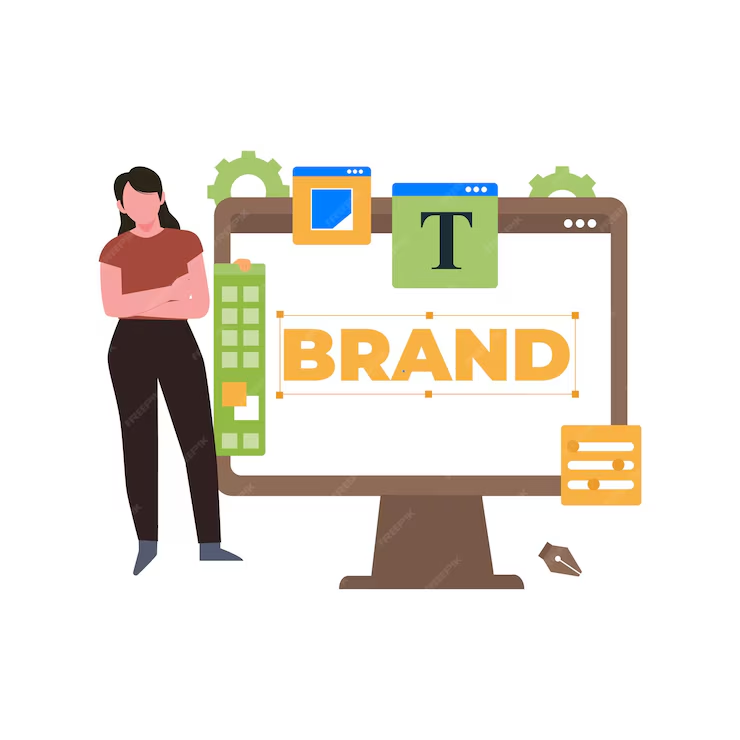Why Logo Design is Crucial for Branding

Logo design plays an essential role in defining and enhancing a brand’s identity. It is more than just an image or symbol – it’s the first impression a potential customer has of your business. A well-crafted logo not only reflects the essence of your brand but also helps in building recognition, trust, and loyalty. Whether you’re a startup or an established company, having a professional logo is crucial for setting yourself apart from competitors and establishing a lasting presence in your industry. This article explores why logo design is fundamental to branding, how it influences consumer perception, and how a memorable logo can foster business growth.
The Power of First Impressions
- Your logo is often the first point of contact with potential customers, making it the face of your brand.
- A strong, well-designed logo can spark curiosity and intrigue, encouraging people to explore more about your business.
- A memorable logo creates an instant association with your brand, making it easier for customers to recall your products or services.
Establishing Brand Identity
- A logo serves as a visual representation of your brand’s mission, values, and personality.
- By incorporating the right colors, typography, and symbols, a logo can communicate the tone of your brand (e.g., playful, professional, innovative).
- Your logo forms the foundation of your brand’s visual identity and is used across all marketing materials, creating a cohesive brand experience.
Building Trust and Credibility
- A professionally designed logo helps establish credibility in the eyes of your customers.
- Logos create a sense of consistency, which fosters trust and loyalty from your audience.
- A polished logo shows that you care about the details and are committed to offering quality products or services.
Differentiating Your Brand
- In a competitive marketplace, having a distinctive logo helps you stand out and differentiate yourself from competitors.
- A unique and creative logo grabs attention and makes it easier for customers to remember your business.
- It reflects your unique selling points and values, making it easier for consumers to identify why your brand is different.
Promoting Brand Recognition
- A memorable logo helps increase brand recognition, which is essential for long-term success.
- The more frequently a customer sees your logo, the more likely they are to remember and trust your brand.
- Consistent use of your logo across different marketing platforms (website, social media, packaging, etc.) reinforces your brand’s identity.
Enhancing Brand Loyalty
- A logo that resonates with customers emotionally can foster deeper connections and brand loyalty.
- Customers who feel a personal connection with your brand are more likely to engage with it, recommend it, and make repeat purchases.
- A strong logo design can evoke positive feelings and associations, building long-term relationships with your audience.
Simplicity and Versatility in Logo Design
- Simplicity in logo design ensures that it is easily recognizable, scalable, and versatile.
- A good logo should look great in various formats – from business cards to billboards, to social media profiles.
- Logos with minimalistic designs often have a timeless appeal and don’t rely on fleeting trends that can quickly become outdated.
The Impact on Marketing Materials
- Your logo becomes the central piece of all marketing materials, including brochures, websites, advertisements, and promotional products.
- A cohesive visual identity makes your brand more memorable and helps customers connect with your message across all touchpoints.
- A strong logo provides a sense of professionalism and consistency in all communication, increasing your brand’s effectiveness in marketing.
Conveying Your Brand’s Story
- A well-designed logo can tell a story about your business, its history, or its values.
- Incorporating storytelling elements into your logo design can create emotional connections with your target audience.
- A narrative behind your logo allows customers to relate to your brand and understand what it stands for.
The Role of Color Psychology
- The colors you choose for your logo can have a profound impact on how people perceive your brand.
- Different colors evoke different emotions and psychological responses (e.g., blue for trust, red for excitement, green for health).
- Understanding color psychology can help you design a logo that communicates the right message and resonates with your audience.
Building a Legacy
- A timeless logo can help build a legacy and make your brand easily recognizable for years to come.
- A well-crafted logo withstands the test of time and doesn’t need frequent updates, ensuring brand consistency over the long haul.
- As your business grows, your logo can continue to represent your brand’s evolution while maintaining its core identity.
Creating a Competitive Advantage
- A professional logo design gives you an edge over competitors who may not have invested in a high-quality brand image.
- It reflects your business’s commitment to quality, which can influence purchasing decisions and customer perception.
- A strong, recognizable logo can also help you navigate new markets and expand your reach.














